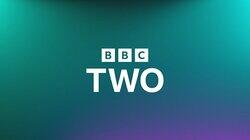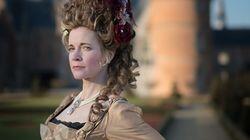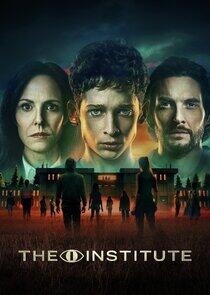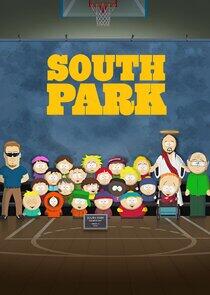Royal History's Biggest Fibs with Lucy Worsley - Season 2

Season 2

Episodes

French Revolution
'Let them eat cake!' is one of the most famous phrases of history and one that everyone associates with the French Revolution. But did Marie Antoinette – the queen of France - really say it? In this film, Lucy Worsley explores some of the myths and fibs swirling around the Revolution of 1789 and the uprising that brought down the French royal family. This violent revolution became the blueprint of many future revolutions across the world. But what happened during this turbulent period is open to historical manipulation and interpretation.
Lucy discovers that Marie Antoinette never said, 'Let them eat cake'. This was a fib used by later historians to help explain why the revolution happened. Historian Michael Rapport explains how the revolution was not started by starving peasants, as many assume but was, in fact, sparked by a group of lawyers and property owners. Along the way, Lucy finds out that Maximilien Robespierre wasn't simply a bloodthirsty revolutionary who relished violence and wanted to execute everyone who disagreed with him. In his earlier years, he stood against the death penalty and slavery and fought for the rights of France's Jewish population. And the guillotine was invented by the revolutionaries not as a brutal punishment but as a more egalitarian and humanitarian form of execution.
Depending on your politics and your nationality, Lucy finds out that everyone has a very different take on the French Revolution.

George IV and the Regency
Lucy Worsley finds the fibs behind the facade of Georgian elegance and discovers how the story of Regency Britain – from Waterloo to Peterloo – was spun to avoid revolution.
We think of the Regency as genteel and well-ordered: beautiful buildings, Jane Austen's romances, and red-coated officers defeating Napoleon at Waterloo. Lucy Worsley digs behind the facade of Georgian elegance to reveal the fibs that helped conceal a darker side to the Regency and suppress rebellion in an age of revolution.
This was the end of the Georgian era when a mentally ill King George III was forced to hand power to his extravagant son – the prince regent and future King George IV. Both kings lived in the shadow of the French Revolution and the rise of Napoleon.
To make matters worse for the royals, British radicals were demanding political reform. To stop rebellion, monarchy and government relied on spin, secrets, and lies. Lucy reveals how an international victory at Waterloo became distinctly British, why the Peterloo Massacre was airbrushed out of history, and how Scotland was dressed up in tartan to support the union.

Russian Revolution
We think we know the story of the Russian revolution - in October 1917, the Bolsheviks rose up, swept the tsar from power, and communism was born. In this film, Lucy explores the myths and fibs that swirl around the dramatic events of 1917. She finds it was really a group of women workers who kick-started the Russian Revolution in February 1917. At the time, the Bolsheviks tried to stop it, and Lenin, the radical leader of the Bolsheviks, wasn't even in the country.
Lucy discovers that the tsar was forced to abdicate long before the Bolsheviks took control. And she finds out how King George V betrayed his cousin by opposing the British government's offer of asylum to the tsar and his family. This was kept secret for decades.
Along the way, Lucy reveals how the Bolsheviks used films and books to big up the October revolution while belittling the February revolution as irrelevant and bourgeois. And when Lenin died in 1924, Stalin lied his way to the top - he repressed Lenin's last wishes and faked paintings and photographs to support his claim to be Lenin's chosen successor.
Recently Updated Shows

Vought Rising
A twisted murder mystery about the origins of Vought in the 1950s, the early exploits of Soldier Boy, and the diabolical maneuvers of a Supe known to fans as Stormfront, who was then going by the name Clara Vought.

The War Between the Land and the Sea
When a fearsome and ancient species emerges from the ocean, dramatically revealing themselves to humanity, an international crisis is triggered. With the entire population at risk, UNIT step into action as the land and sea wage war.

The Institute
When 12-year-old genius Luke Ellis is kidnapped, he awakens at The Institute, a facility full of children who all got there the same way he did, and who are all possessed of unusual abilities. In a nearby town, haunted former police officer Tim Jamieson has come looking to start a new life, but the peace and quiet won't last, as his story and Luke's are destined to collide.

South Park
South Park is an adult comedy animation show centred around 4 children in the small town of south park. Its humour is often dark involving satirical elements and mocking current real-life events.

Young Sherlock
Young Sherlock is touted as an irreverent, action-packed origin story of Sir Arthur Conan Doyle's beloved detective in an explosive re-imagining of this iconic character. At age 19, Sherlock Holmes is disgraced, raw, unfiltered, and unformed, when he finds himself caught up in a murder mystery at Oxford University which threatens his freedom. Diving into his first-ever case with a wild lack of discipline, Sherlock manages to unravel a globe-trotting conspiracy that will change his life forever.